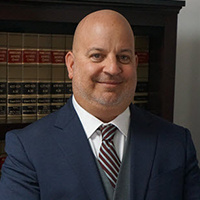 Souderton Criminal Lawyers, Pennsylvania
Souderton Criminal Lawyers, Pennsylvania
Sponsored Law Firm
-
 x
x

Click For More Info:
-
James E. Crawford, Jr. & Associates, LLC
999 Corporate Blvd. Suite 100 Linthicum, MD 21090» view mapCriminal Defense, Divorce & Family Law Move Forward With Confidence
Our Firm's team of family, criminal, and business lawyers understand that each case presents unique challenges and must be met with equally unique approaches.
800-789-9220
Sponsored Lawyers
1-8 of 8 matches
Divorce & Family Law, Landlord-Tenant, DUI-DWI, Estate, Wills & Probate
Liam J. Duffy practices in the areas of Divorce, Support, Child Custody, Equitable Distribution, Protection from Abuse, Civil Litigation, Business Law and Landlord-Tenant Law. He is admitted to practice in Pennsylvania, New Jersey, and the Eastern District of Pennsylvania. Liam is a member of the Pennsylvania Bar Association, Montgomery County Bar Association, and Bucks County Bar Association. For 2017, 2018, and 2019, Liam was awarded the SuperLawyers Rising Star Designation, which is reserved for 2.5% of eligible attorneys in Pennsylvania. He was also awarded the 2019 Top 10 under 40 Award. Liam prides himself on being a pragmatic and compassionate attorney but also one who will aggressively protect his client's interests and litigate more complex cases. Liam volunteers as an MCAP pro bono attorney for children in Montgomery County and as a pro bono attorney for the Women's Center of Montgomery County. Liam has acted as a Divorce and Financial Planning subject matter expert for the American College in Bryn Mawr. Prior to becoming an attorney, Liam focused his education and career on business and corporate finance. He attended the University of Delaware for his Bachelor’s degree, Saint Joseph’s University for his Master’s degree in Finance, and Rutgers for his law degree, where he graduated in the top 10% of his class. After business school, Liam worked for six years in corporate finance and earned various financial designations. Despite having a promising and lucrative career in finance, he decided to pursue a career in law where he could help people and spend time in the courtroom. In his free time, Liam enjoys coaching his children’s sports teams, exercising at a local gym, and spending time with his family.
(more)Accident & Injury, Criminal, Estate
Following law school Mr. Margiotti practiced exclusively in the area of personal injury and accident law with a major Philadelphia law firm. After several years he then moved to Spring House, Montgomery County, and began his own solo practice focusing upon personal injury and accident cases, as well as DUI defense. Mr. Margiotti then entered a partnership during the 2000's based in Montgomeryville, Pennsylvania, focusing again in the areas of personal injury and accidents, as well as DUI defense. In 2010 Mr. Margiotti closed his Montgomeryville office and founded McMenamin & Margiotti, along with Mr. McMenamin. Mr. Margiotti is Nationally Certified by the National Highway Traffic Administration in field sobirety testing. He was the recipient of the National Italian American Scholarship for Scholastic Achievement in law school.
(more)


 James Crawford, Jr. Linthicum, MD
James Crawford, Jr. Linthicum, MD Practice AreasExpertise
Practice AreasExpertise


